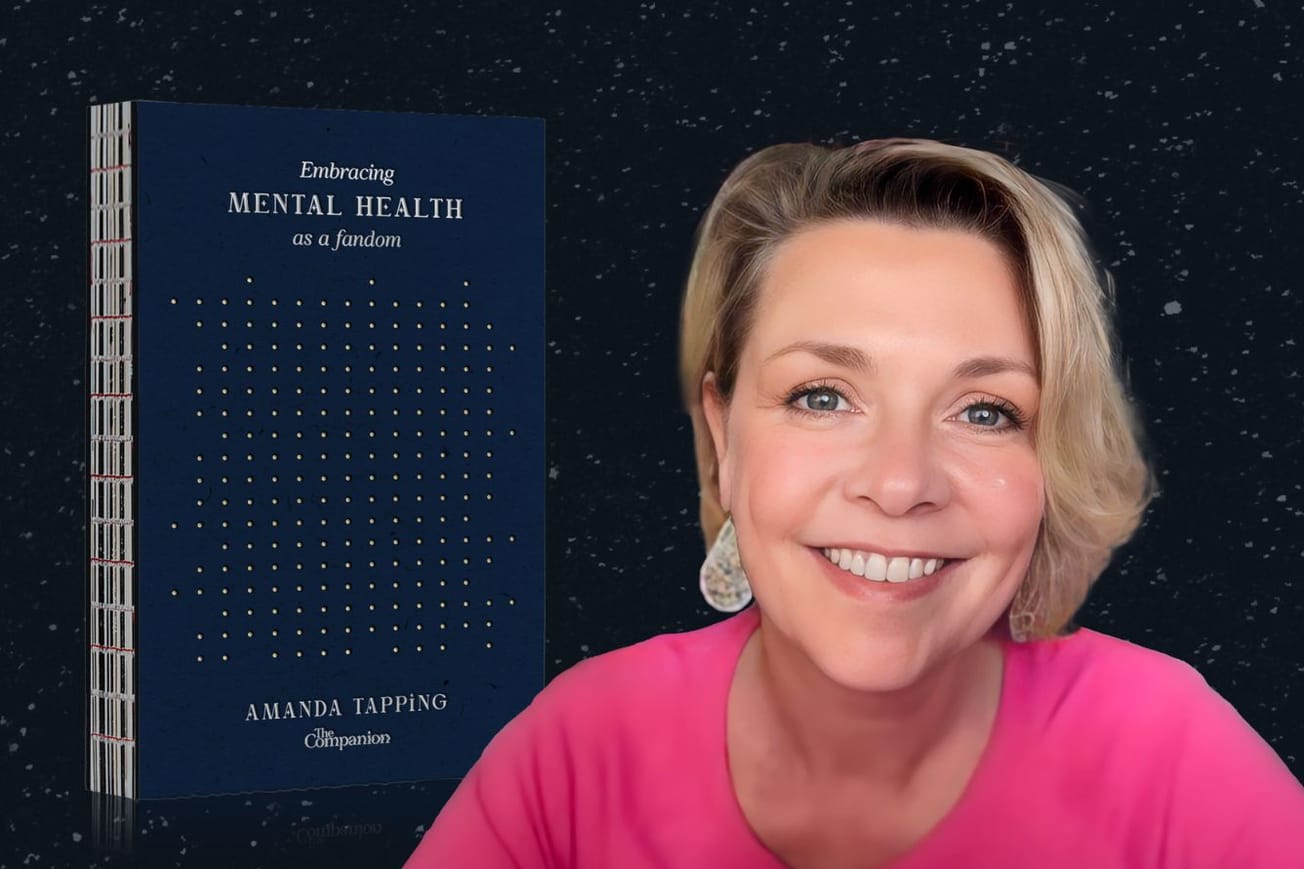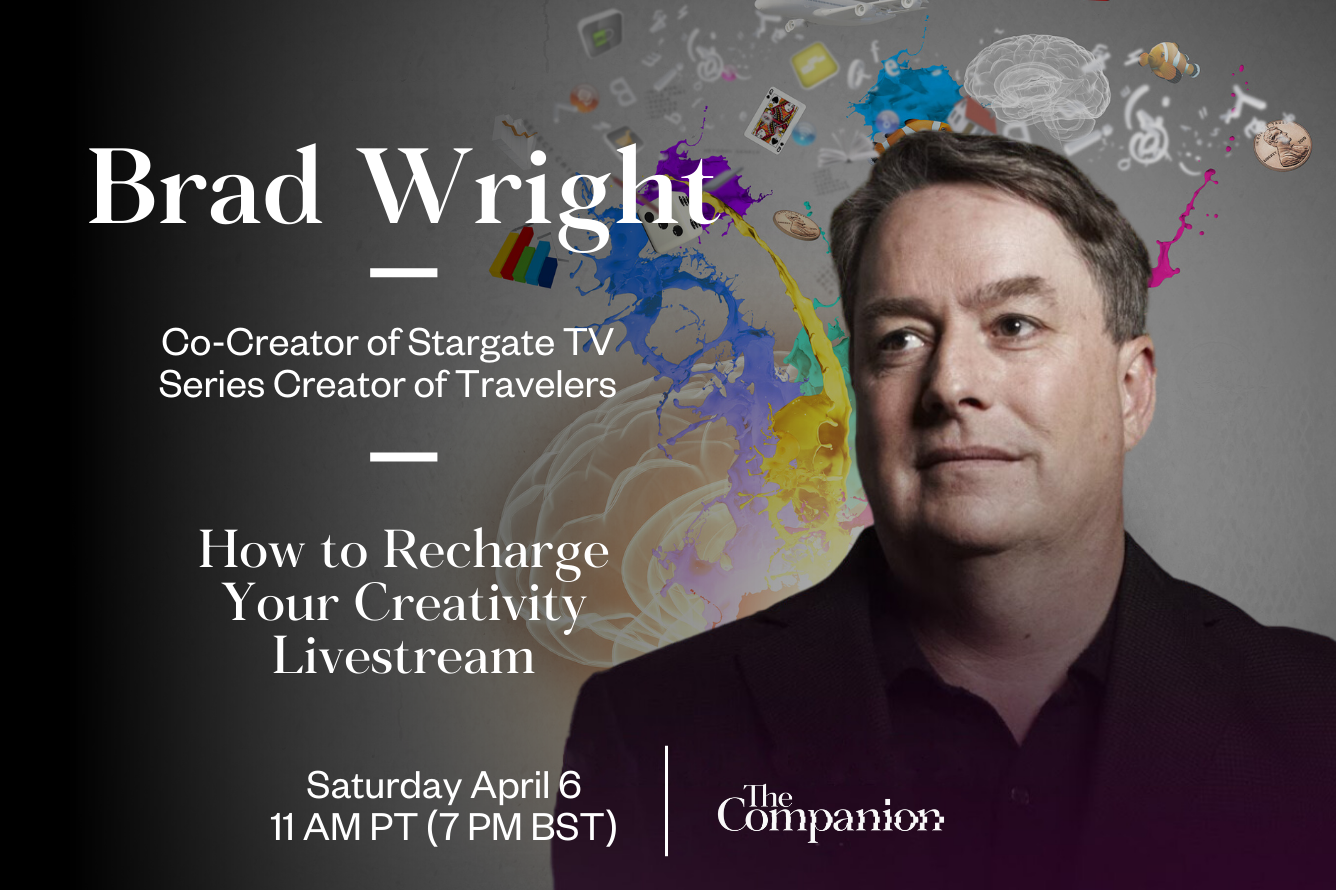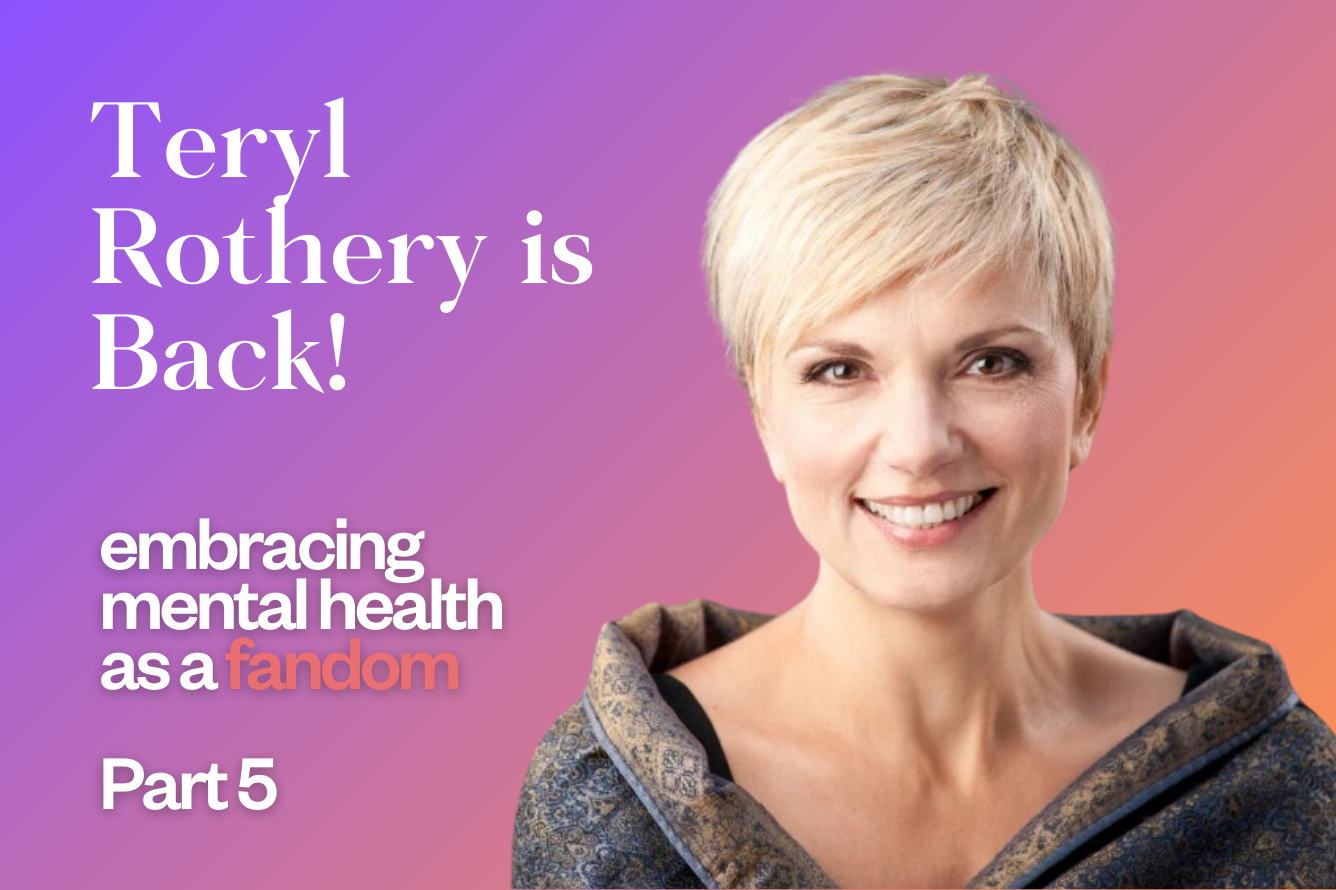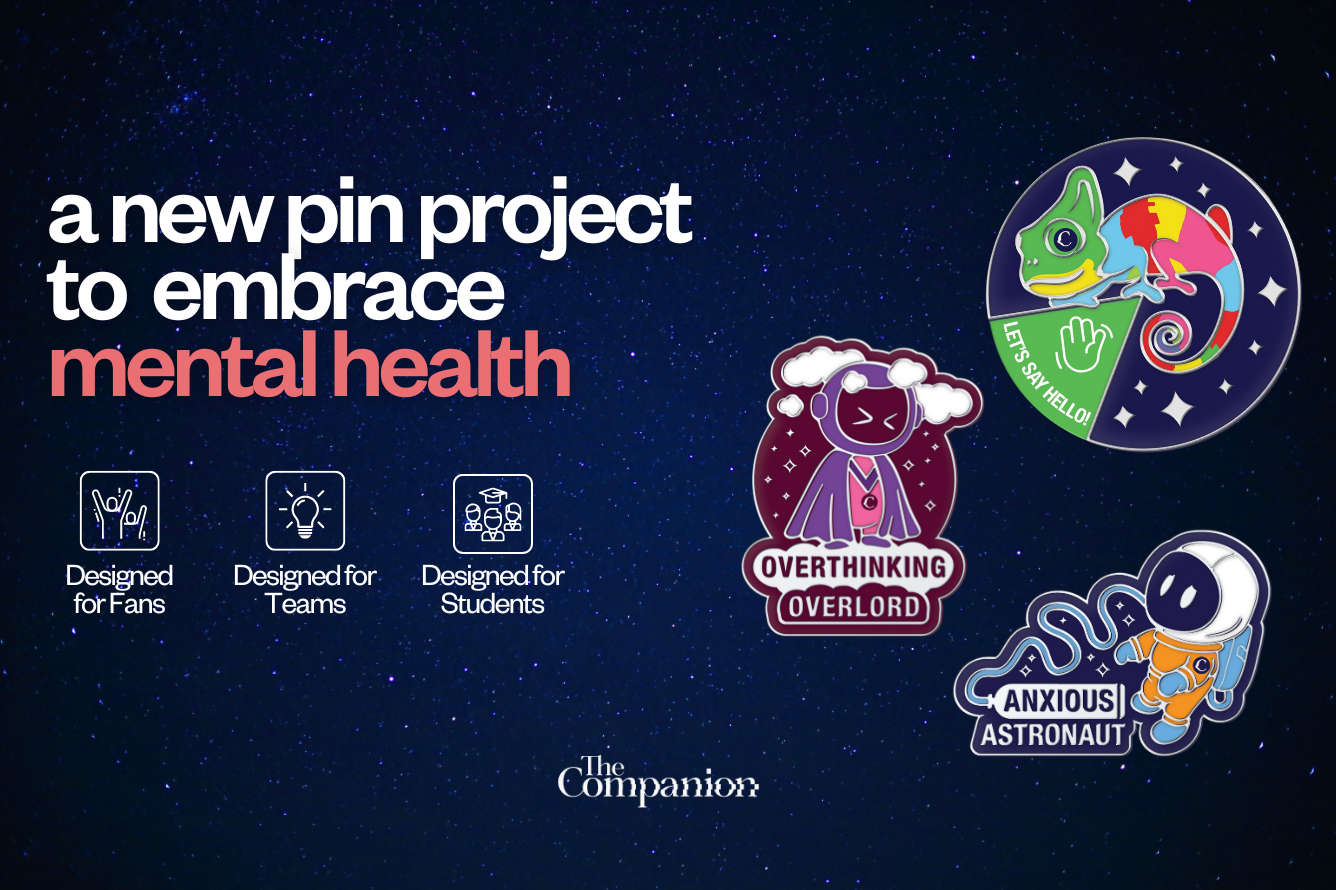For many of us, our introduction – or perhaps, immersion – in science fiction is a multi-generational experience.
George Mole wrote of it in his character analysis of Jack O’Neill throughout Stargate SG-1 and the experience was so strikingly similar to my own that I immediately reached out to him.
It was my late father who introduced me to Doctor Who, read me the unabridged Dracula and Lord of the Rings, and together we went on a journey through Farscape, Terry Pratchett, and Buffy the Vampire Slayer. Every Tuesday evening after BBC2’s regular 6 pm ‘cult slot’ I would pick up the phone and we’d dissect the most recent episode of whatever it was we had watched separately but together. Those conversations, which encompassed a breadth of lived experiences so incidentally, are still vital to me as fragments of advice and insight. Incomplete but incomparable – the Dad Sea Scrolls, if you like.
Even now something will pop into my head that in hindsight has become somehow meaningful and I know – in the grand scheme of things – I’m lucky to have that. There will always be regrets that I was too much of a child at 19 to have asked the important questions, but your parents needn’t have passed for you to be estranged from them, physically or emotionally. We are all to some extent pounding uselessly at the sheet of ice until our knuckles are bloodied. Desperate to break through, to understand, and be understood in turn.
‘Secrets’: Estranged Father and Daughter
It’s a trope common to fiction that military parents – particularly the military parents of military children – create bonds that are more obviously strained. Loyal to a higher cause, they’re forced to walk a path that takes them away from their families, whether through deployment overseas, death in battle, or sheer emotional unavailability.
The Impact of Service Life on the Military Child: The Overlooked Casualties of Conflict – Update and Review Report (2021) from the UK Naval Children’s Charity reported that children with a serving military parent are more likely to experience anxiety and depression. Children whose parent is deployed for extended periods of time “may result in difficulties within the parent-child relationship. […] with Naval spouses reporting anger, resentment, and rejection from children towards their serving parent.”
Those whose offspring follow them to the flag often seek out their parents’ validation or their respect, and by echoing their devotion to those same values can sometimes achieve it. The outcome is often depicted as trading an unfulfilling parent/child dynamic for a – fingers crossed – more fulfilling peer dynamic.
It’s a trope because we understand it. Our expectations of military behavior helpfully underscore the weight of parental expectations, rigid and hierarchical interactions, and long periods of absence, amongst other things. They also tease out the similarities in our own lives. We’ve all felt abandoned or isolated by a parent at some point, found their support was missing at a crucial time, an opportunity lost to their absence, or a situation transformed for the worse by their decisions. That’s not the exclusive turf of those who grow up around military bases, but it is the storytelling language by which it can be briskly communicated when you have a 45-minute planet-hopping sci-fi adventure to be getting on with.

Here we find US Air Force Major General Jacob Carter and his daughter, then-Captain Samantha Carter of SG-1. Their relationship is framed by tragedy. She blames him for her mother’s death when work prevented Jacob from picking his wife up from the airport. Instead, she caught a cab and was killed in a traffic accident. As a child, the 12-year-old Samantha can be forgiven for holding Jacob responsible for a tragedy he had no hand in, but his remoteness does little to close the gap. By the time Stargate SG-1 begins, the pair are entirely estranged, bound only by their surnames and past proximity.
Played by the sorely missed Carmen Argenziano, Jacob Carter is introduced in the Stargate SG-1 episode ‘Secrets’ (S2, Ep9) in an awkward reunion that once clear of their hug sees him denigrating her life choices in an attempt to ‘help’ her join NASA. Although he’s skeptical about her cover story, she’s unable to tell him that she routinely exceeds the wildest dreams of the space age and instead strikes a prideful tone, noting that her work is top secret. She pushes like a child against a parent for validation but receives a child’s petulant response.
“Whatever you really analyze in that mountain, deep space or no deep space, it can’t be nearly as exciting as the real thing. I’m talking about NASA, Sam. I’m talking about you actually going to space someday.”
As they coldly part ways, Jacob reveals to her that he has terminal cancer and he hoped she would become an astronaut whilst he was still alive to witness it. It feels like an act of retaliation masked as parental care – a piece of passive-aggressive MAD (mutually-assured destruction) worthy of an old Cold Warrior. As an adult – not a grieving teenager, lashing out and looking for someone to blame – the further souring of their relationship is a burden for both to shoulder.

Sam’s sadness is compounded by her guilt at the missed opportunity, her regret at the paths taken, and her frustration that understanding is just a few words away, yet the ice holds her tongue. Perhaps there is also a bitter note of recognition that now it is her devotion to duty – or her willingness to hide behind it – which now holds them apart at what could have been a turning point.
It is, by any measure of cultural criticism, incredible drama. It’s unsurprising that of Amanda Tapping’s three Leo Awards for Stargate SG-1, two are for her performances in episodes mentioned here – Best Lead Performance by a Female, Dramatic Series 2004 for ‘Grace’ (S7, Ep13) and Best Lead Performance by a Female, Dramatic Series 2005 for ‘Threads’ (S8, Ep18).
‘The Tok’ra, Part 1’ and ‘Part 2’: Breaking the Ice
It is also, however, also science fiction and so the story doesn’t end with the rhythmic pump of chemotherapy. In the Stargate SG-1 episode ‘The Tok’ra, Part 1’ (S2, Ep11), Jacob Carter summons his old friend General Hammond (Don S. Davis) to his bedside as he rages against the dying of the light. He doesn’t ask for Samantha, but she is – in his mind – present.
“Let me tell you something George, my little girl grew up seeing Daddy go off to God knows where to fight God knows who, and I always came home alive and well. Now, I’m going to let her sit here and watch me lose a war? To some little runts so small I can’t even see ’em?”
Hammond, as Sam’s CO and Jacob’s old comrade, is a surrogate of sorts to both. He’s an unambiguous father figure to Sam, but also from this exchange, it’s clear that Jacob looks to George to offer her the contact that he finds himself incapable of. It is, within the context of military masculinities, an incredible tender exchange and Hammond closes the loop. He waives secrecy so that the father and his daughter can see each other for who they are: Sam is the daughter who saves the universe on the down low, and Jacob is the father who cares so deeply that he would do anything to shield her from hurt.

For the first time, their eyes meet through the frosted sheet of ice and it begins to crack. With understanding comes opportunity. For us, this often comes as a means to repair relationships and heal old wounds, but Stargate SG-1 being Stargate SG-1, it arrives in a far more fantastical guise. As SGC navigates its tense relationship with its potential allies, the Tok’ra, Sam discovers that the presence of a Tok’ra symbiote has the potential to cure Jacob’s lymphoma. As it happens, binding the symbiote to a new host would solidify the mistrustful alliance between the Tok’ra and humanity – a fairly obvious analogy for the episode’s other fragile new relationship.
In what is for all intents and purposes a second deathbed scene in as many episodes – the blending with his symbiotic co-pilot Selmak might not take, or his cancer might be too advanced to be healed – the grizzled old warhorse makes amends as best he can in ‘The Tok’ra, Part 2’ (S2, Ep12).
Jacob: Listen, Sam, I was never good at this stuff.
Samantha: Dad, you don’t have to say anything.
Jacob: You gotta know one thing. How proud I am of you. I’m not good at saying these things enough.
Samantha: I think you just said it pretty well.
Jacob: Even when I thought you were this whizz satellite geek, I was proud. That’s all I want to say.
‘Tanget’: Functioning Father-Daughter Dysfunction
If that’s where Samatha Carter and Jacob Carter’s story ended, it would be enough. Second chances, when they come, rarely arrive via a Stargate but science fiction, with its license to render the proverbial literal, gives them a second life to match.
As a respected senior commander in the US Air Force and a member of the Tok’ra High Council with intimate knowledge of both cultures, Jacob Carter straddles two worlds at the very highest level. The relationship which has been renewed now lurches into wish fulfillment as Sam receives an appropriate emotional pay-off to match the star-spanning stakes:
“I was trying to find you a better assignment and you didn’t need it. Now you’ve found me the best assignment an old soldier could dream up. Thanks, kid.”
This arc is effectively closed in three episodes, but Jacob remains a regular part of his daughter’s world, with a mandate to meddle in Samantha’s affairs that go beyond those imagined by even the most overbearing parent. It’s easy to get distracted by the superficial antagonism of, say, ‘Tangent’ (S4, Ep12), and overlook the extent to which this once-dysfunctional dynamic has started to function.
SG-1 finds themselves briefly at cross-purposes with Jacob when they blow his cover on a Goa’uld-occupied world, he gives them a dressing down worthy of his rank. Later he channels his reserves of Tok’ra self-importance and pointedly tells Samantha, now a major, that hotwiring a Death Glider in the name of humanity is ridiculous. As if it’s the second week of a Christmas break in your childhood home, Sam’s more juvenile instincts bubble to the surface. She rolls her eyes at the first outburst and bickers with him over the second.
Jacob: And, what were you thinking, anyway? Retrofitting a Death Glider? You should have known better. The technology you’re screwing around with is way over your head!
Samantha: That is the most arrogant… I can’t believe that that just came out of your mouth!
Jacob: Well, it’s the truth.
Samantha: You of all people should know….
Jacob: I am uniquely qualified to know just how technologically infantile the human race is.
Samantha: Infantile?!
Rather than showing that their relationship is just as brittle as it ever was, I’d argue that this exchange speaks more warmly than the words themselves. Compared to the tension and remoteness back in the earlier Stargate SG-1 episode ‘Secrets’ (S2, Ep9), there is an emotional vulnerability from them both. Sam is comfortable in allowing herself to be the child, rather than merely acting like one. She feels irritated by her father and lets herself explore those feelings rather than keeping them buttoned down, just as Jacob articulates his expectations rather than choking back disappointment and releasing it in pointed passive-aggression.

Few of us have entirely idyllic relationships with our families, but it doesn’t make those relationships problematic in themselves. We find ways to make them work, we fight and make up, talk it out and try to deepen our understanding of ourselves and each other. Sure, Sam and Jacob would go viral on Family Feud, but this is a relationship true to both of their personalities. Maybe it’s still unhealthy, but it is at least healthier – it demonstrates a connection and a dialogue between the two.
Dr. Kira S. Birditt’s paper ‘Tensions in the Parent and Adult Child Relationship: Links to Solidarity and Ambivalence’ (Psychology and Aging, June 1, 2010) weighs up parent-child relationship quality into solidarity and ambivalence. In this instance, ambivalence is “defined as experiencing positive and negative sentiments about the same relationship. For example, a daughter may experience simultaneous feelings of love and irritation regarding her mother.”
The study found that individual tensions, such as disagreements over specific topics – joy-riding a Death Glider, for example – produce as much ambivalence as relationship tensions (fundamental disagreements over how the parent and child interact, such as Jacob’s remoteness or unsolicited career advice), but individual tensions had no impact on the perceived quality of that relationship.
Moreover, in some cases it makes the relationship stronger: “Some research suggests a possible link between individual tensions and [better] relationship quality. Fingerman (1996) found that mothers and daughters who attributed tensions to annoying behaviors/habits reported greater regard for the relationship.”
‘Grace’ and ‘Threads’: Speaking from the Heart
In the Stargate SG-1 episode ‘Grace’ (S7, Ep13) we get the most explicit glimpse of how Samantha views her father when she is plagued by hallucinations after her ship is driven into a mysterious gas cloud. Amongst the support acts from her subconscious, Jacob offers her the comfort that was in all likelihood not part of his repertoire, but it’s significant that it’s him that her mind reaches for when she needs guidance.
“For as long as she was alive, your mother showed me a world beyond just ambition and career. She gave my life meaning and balance and it was my honour to love her for the short time she was with me. And if I were young again and I met her for the first time even knowing her fate, I would do it all again.
“That is love. Sam, I know you’ve denied yourself the experience because you think it must inevitably end in pain and loneliness. It’s time to let go of the things that prevent you from finding happiness. You deserve to love someone and be loved in return.”
Hold that thought, we’ll be coming back to it.

Though his bonding with the symbiote drove off his cancer, even Tok’ra has a time limit. The next year’s Stargate SG-1 episode ‘Threads’ (S8, Ep18) reflects the drama of ‘Secrets’ (S2, Ep9) with a bittersweet symmetry. Back in Season 2, Samantha’s big moment – her award – was set against the reveal of her father’s impending death, here it’s Sam’s wedding preparations that are derailed by Jacob’s news. Selmak is beginning to die and as host, Jacob will die with him. History is repeating itself, but it’s giving them a chance to put things right.
Like the Jacob Carter of her feverish visions in ‘Grace’ (S7, Ep13), he offers her some fatherly advice. Although it’s not as eloquent (will parents ever live up to our imaginations?) it’s unmistakably similar as he steers her gently toward acknowledging her feelings for Jack O’Neill (Richard Dean Anderson). The Jacob Carter of ‘Grace’ knew what Sam was feeling for her colleague because he was only ever a projection of her own hopes and fears, but the Jacob Carter of ‘Threads’ comes to that same conclusion because he’s her father. He knows her better than she realizes – perhaps better than she knows herself as Sam doesn’t initially figure out what he’s driving at.
Jacob: I just wanna know you’re gonna be happy.
Samantha: I am.
Jacob: Don’t let rules stand in your way.
Jacob leaves her with the simple truth of “I love you.” A tearful Sam confides in Jack, implying that the alien influence of the symbiote is the source of their renewed relationship. In truth, it began with the shattering of the frozen wall that decades of dysfunction had thrown up between them. Alien parasites and their restorative glow didn’t return to Samantha Carter her father and to Jacob Carter his daughter.
They did that for themselves. This journey is also within our powers. Selmak’s real gift was the time in which to cherish it and so the message is simply this: do not waste the time you have with one another. Don’t let the ice between you grow unchecked, never think that now is too late because tomorrow might well be.
For those of us who have lost parents, four extra years is a fantasy – I would settle for four silent seconds in which to see my father’s face light up with pride again. Instead, we hold close to those moments of understanding, no matter how rare, and lament the icy shelf which continues to grow between us, thicker and taller with the passage of time.
“Actually, I’m fine. Good, even, strange as that sounds. I thought I lost him four years ago. Since then, we’ve been closer than we ever were in my whole life. In a way, Selmak gave me the father I never thought I’d know.”
This article was first published on December 3rd, 2020, on the original Companion website. It was updated on May 24th, 2022 with data relating to the experience of military children and parents.
Not only did this article win the praise of Amanda Tapping, but it was voted r/Stargate’s Best Original Content for 2020. Thank you!
The cost of your membership has allowed us to mentor new writers and allowed us to reflect the diversity of voices within fandom. None of this is possible without you. Thank you. 🙂










